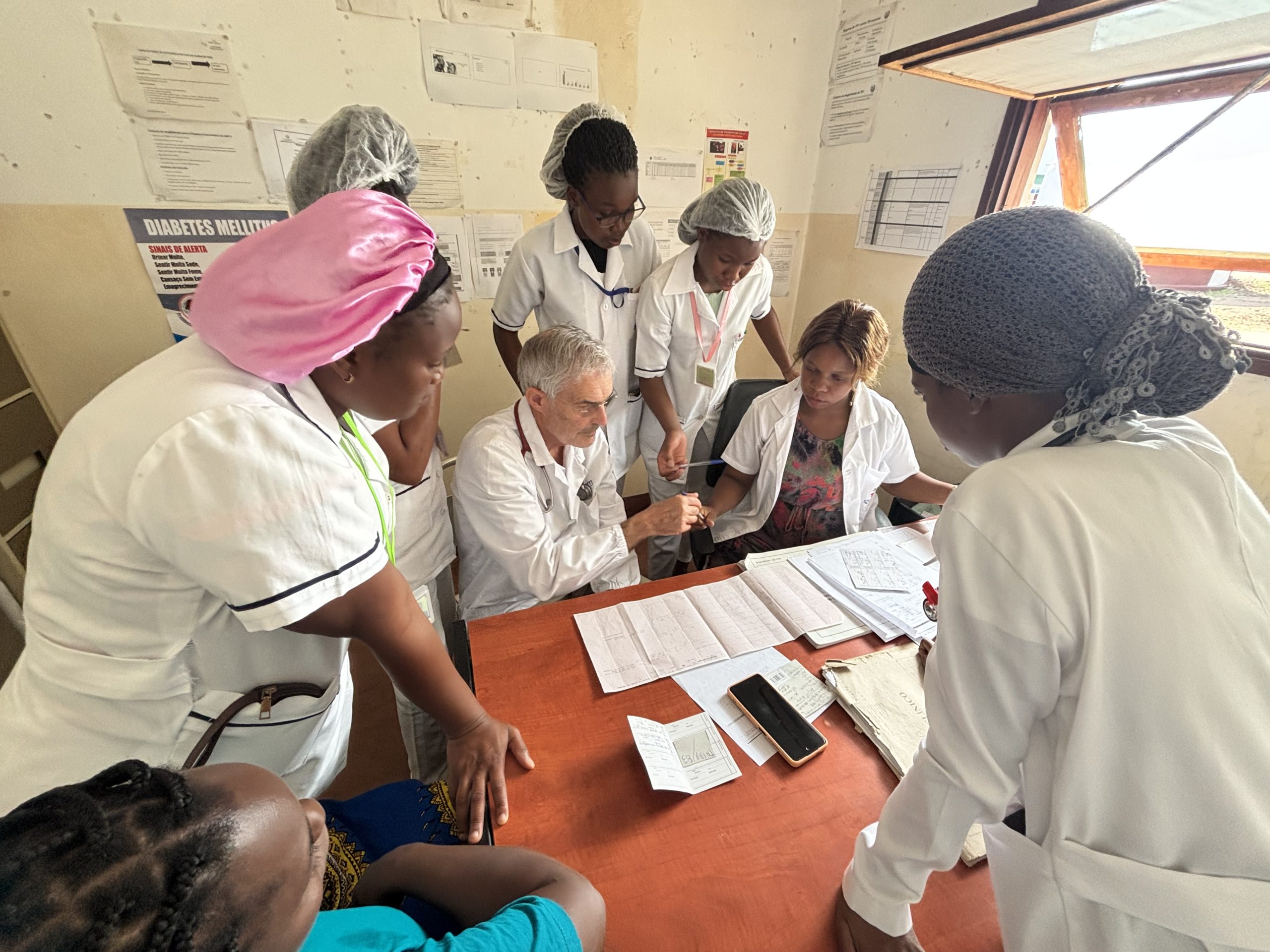Training and strengthening of the healthcare system in mozambique: tackling hypertension and diabetes through the NCD project
From March 17 to 24, 2025, a training mission was carried out for Mozambican healthcare personnel on hypertension and diabetes as part of the NCD (Non-Communicable Diseases) project, funded by the Development Cooperation Agency.
The team of experts—Fausto Ciccacci, Giovanni Guidotti (DREAM Program of the Community of Sant’Egidio), Andrea Manto (diabetologist), and Sandro Petrolati (former head of cardiology at San Camillo Hospital)—conducted on-the-job training for staff at public health centers in Moamba Sè, Sabie, Sao Damaso, Matola 2, and Matutuine, where the practical sessions took place.
The NCD project aims to reduce comorbidity, disability, and mortality caused by non-communicable diseases such as hypertension, diabetes, and cervical cancer in Mozambique. During the mission, particular emphasis was placed on health education, raising awareness among the population about the risks associated with these diseases. In addition, the project focused on personalizing treatments for patients, especially those with pre-existing conditions.
Throughout the mission, local doctors and technicians accompanied the trainers during patient visits, enhancing their skills in diagnosing and treating hypertension and diabetes. This hands-on approach allowed for a combination of theory and field experience, enabling participants to acquire valuable competencies for their daily work.
Health centers used diagnostic tools such as ECGs—crucial for monitoring the impact of hypertension on the heart—and machines for glycated hemoglobin testing, essential for managing diabetes. Direct interaction with local doctors helped define personalized therapies based on each patient’s specific condition.
One of the project’s core components is continuous training, which supports therapeutic continuity through a support network across various health centers. The training activities also included data collection and epidemiological analysis, key tools for tracking disease trends and improving health policies in the country.
In the long term, the implementation of these interventions will help strengthen the capacity of Mozambique’s Ministry of Health (MISAU). This improvement will not only affect the quality of care but also enhance the health system’s ability to address challenges related to non-communicable diseases. The introduction of standardized treatment protocols, updated clinical guidelines, and continuous monitoring of patient health conditions are essential for efficient and sustainable disease management.
Thanks to the dedication of the professionals involved and collaboration with local doctors, a foundation has been laid to improve the management of diseases such as hypertension and diabetes in Mozambique. Ongoing training and access to adequate resources are key to driving change within the country’s healthcare system.
